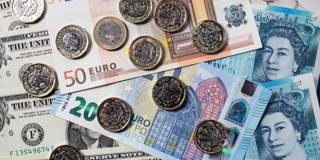OnPoint Subscriber Exclusive

Daniel Gros
Says More…
This week in Say More, PS talks with Daniel Gros, a member of the board and a distinguished fellow at the Centre for European Policy Studies.
Project Syndicate: In your latest PS commentary, you observe that central bankers on both sides of the Atlantic are under pressure to “pivot back to traditional inflation-fighting mode,” though the US Federal Reserve is moving more quickly than the European Central Bank. As you noted in October, the United States probably has more to worry about on the inflation front. But last July, you warned that the transatlantic divergence on monetary policy could eventually strengthen the dollar and generate new trade tensions. How close are we to that point? Should the ECB pick up the pace of policy normalization?
Daniel Gros: The latest data suggest that we are approaching the situation I envisioned. The US trade deficit is now running at around $80 billion per month – higher than at the peak of the housing boom of the early 2000s. Because the US is virtually at full employment, this situation has been largely ignored. But should the US labor market weaken, President Joe Biden’s administration might wake up to the need to defend well-paid jobs from foreign competition. This could lead to the trade tensions I predicted.
PS: You have underscored a link between hydrocarbon prices and Russia’s foreign policy, pointing out that higher oil and gas prices have often coincided with Soviet/Russian military interventions abroad, from Afghanistan in 1979-80 to Georgia in 2008. In 2014, Ukraine might have been spared even more aggression by an oil-price crash, which weakened Russia’s economy at a crucial moment. Today, gas prices are again surging – and so is Russian aggression. Are we seeing the same dynamics at work? What does this mean for the EU?
DG: Unfortunately, the answer to your first question seems to be yes. Complaints about NATO’s expansion are nothing new. But it is only recently that Russia has been massing troops near Ukraine’s border. The shift can probably be explained largely by the fact that the combination of high gas prices and years of conservative macroeconomic policies mean that Russia’s economy is now effectively “sanction-proof.” Putin, it seems, feels that Russia’s position is strong enough to risk a war.